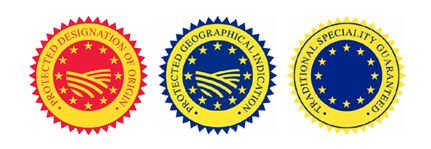

EU: Possible extension of GI protection to non-agricultural products
November 10, 2015
Categories:
Post date:
10. November 2015 - 13:15
On 6 October 2015 the European Parliament (EP) adopted a resolution on the possible extension of geographical indication (GI) protection of the European Union (EU) to non-agricultural products. The resolution follows a stakeholder consultation concluded in October 2014 which favored an EU system of protection based on geographical indications for non-agricultural products. The Commission is called to propose without delay a legislative proposal for a single European system of GI protection for non-agricultural products.
Background of the resolution
Geographical indications are distinctive signs which identify a good as originating in the territory of a particular country, or region or locality in that country, where a given quality, reputation or other characteristic of the good is essentially attributable to its geographical origin. In the EU protection for GI’s can be sought for agricultural products and foodstuffs, wine and spirit drinks. However, in some Member States, non-agricultural geographical indications are protected by national laws, which results to different degrees of protection within the EU.
The EP states that the EU should adopt legislation on non-agricultural GIs, such as typical regional handicrafts. The legislation should be adopted in order to fully exploit the positive economic effects of protecting the distinctiveness and quality of such products, provide consumers with reliable information on their place and method of production, and preserve the know-how and jobs relating to them. The traditional know-how and techniques are considered to form part of the EU’s cultural heritage and consumers are seen to show a growing interest not just in product safety, but also, in the origins of products, their authenticity and the methods by which they are produced. The Parliament also considers that the extension of protection would bring positive effects on trade relations with third countries.
General principles and the proposed registration process
The resolution calls on the Commission to apply the lessons learned from the experience gained in the protection of GI’s in the agricultural and food sectors. The aim is to create a new system which is based on best practices and non-discriminatory principles and is transparent, effective, responsive and free of unnecessary administrative burdens and deterrent costs for producers who voluntarily decide to register a product under a geographical indication scheme. The costs and red tape for businesses is to be kept to a minimum in the new system.
A broad definition that would make it possible to recognize the link between a product and the area covered by the GI is favored and the system of protection should enable the inclusion of names which are unambiguously associated with a given place. Also non-verbal signs and symbols that are unmistakably associated with a particular region should be included. Even though a broad definition is preferred, some indications, for instance generic terms or homonyms, have to be excluded from GI protection.
The Parliament proposes a compulsory registration procedure to provide greater security, especially as regards the enforcement of rights in the event of a dispute. It is also stressed that the system must be accompanied by the creation of a single standardized and public European register for non-agricultural products benefiting from geographical indication protection. At least the following criteria should be included in the specifications of the products: raw materials used, description of the production process, proof of the link with the territory, and elements of corporate social responsibility. Quality checks after the registration are considered to be necessary in order to make sure that the criteria on which the status was based are still being met.
The resolution is now forwarded to the Council and the Commission for the preparation of a legislative proposal. It is also proposed that the Commission examines the possibility of transferring the registration of agricultural and non-agricultural GIs to the OHIM.
Related
- "Neuschwanstein" is not a trademark!
- 1 December 2017: Madrid Monitor takes its place as the one and only tool for tracking international trademarks
- 1 January 2020 - Changes in Classifications - Trademarks, Designs, Patents and Utility Models
- 100th Anniversary of Bavaria (Germany) - A glance at trademarks, start-ups, innovation & events
- 10th Anniversary Edition - 10 Things to Know about LexDellmeier - Past, Present & Future
- 14 June 2013: Munich Patent Law Conference - Calculating Damages in Patent Infringement Cases
- 15 Top Brands - Interactive Brand Rating - Years 2000 - 2018
- 15 Years LexDellmeier - 2024 New Year Wishes
- 2014: Statistics for Community Trademarks
- 2024 World IP Day - Building Our Common Future with Innovation and Creativity
